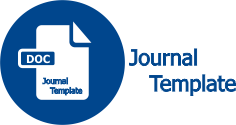Pengembangan E-Modul Asam Basa Berbasis Problem Based Learning melalui Google Classroom pada Sekolah Menengah Kejuruan (SMK)
(1) Universitas Negeri Makassar
(2) Universitas Negeri Makassar
(3) Universitas Negeri Makassar
(*) Corresponding Author
DOI: https://doi.org/10.26858/cer.v5i1.26362
Abstract
Full Text:
PDFReferences
Alfiantara, Anggih, dkk. 2016. Pengembangan Modul Berorientasi Problem Based Learning Berbantuan Aplikasi Android. Semarang: Universitas Negeri Semarang.
Danial, M. 2010. Pengaruh Strategi PBL Terhadap Keterampilan Metakognisi dan Respon Mahasiswa (The Effect of PBL Strategy of Students Metakognition Skill and Respon). Jurnal Chemica, 11(2), 1-10.
Danial. M.,dkk. 2018. Development of Chemistry Instructional Tools and Its Effect on Critical Thinking Skills, Metacognition, and Concept Mastery of Students. J. Phys,: Conf. Ser. 1028 012041.
Dahar, Ratna Wilis. 2006. Teori-teori Belajar dan Pembelajaran. Bandung: Erlangga.
Darmawan, Yuda. 2019. Penggunaan Aplikasi google classroom dalam upaya meningkatkan hasil belajar matematika pada siswa kelas X IPS 3 SMA Batik 2 Surakarta. Skripsi. Universitas Muhammadiyah Surakarta.
Depdiknas. 2017. Panduan Praktis Penyusunan E-Modul tahun 2017. Jakarta: Ditjen Pendidikan Dasar dan Menengah.
Farenta, Sekar, Arvy,.dkk. 2016. Pengembangan E-Modul Berbasis Problem Based Learning Mata Pelajaran Kimia untuk Siswa Kelas X SMA Negeri 8 Malang. Jurnal Pendidikan Teori, Penelitian dan Pengembangan, 1(6), 1159-1168.
Imaniar, Thyareza Nanda. 2019. Analisis Keterampilan Proses Sains dalam Penerapan Project Based Learning Berbantuan Google Classroom bagi Siswa Kelas XI. Skripsi. Universitas Negeri Semarang.
Kemp, J.E, dan Dayton, D.K. 1985. “Planning and Producing Instructional Media”. Cambridge: Harper & Row Publisher, New York.
Lil, Alawiyah. 2018. Pengembangan Modul Elektronik berbasis problem based learning pada materi alat-alat optik untuk meningkatkan aspek kognitif peserta didik. Tesis. UIN Sunan Gunung Djati Bandung
Mulatsih, Bekti. 2020. Penerapan Aplikasi google classroom, google form, dan quizziz dalam pembelajaran kimia di masa pandemi covid-19. Ideguru. Jurnal Karya Ilmiah Guru, 5(1).
Permendikbud. 2013. Lampiran peraturan Menteri Pendidikan dan Kebudayaan Republik Indonesia No. 65 Tahun 2013 tentang Standar Proses Pendidikan Dasar dan Menengah
Prasetya, Saka, Agus, Gede,I,dkk. 2017. Pengembangan E-modul pada Mata Pelajaran Pemodelan Perangkat Lunak Kelas XII dengan Model Problem Based Learning di SMK Negeri 2 Tabanan. Jurnal Pendidikan Teknologi dan Kejuruan. 1(1). 96.
Prastowo. A. 2015. Panduan Kreatif Membuat Bahan Ajar Inovatif. Jogjakarta: DIVA Press.
P Pratama Gili, dkk. 2018. Pengaruh E-Modul Berbasis Metode Pembelajaran Problem Based Learning Pada Mata Pelajaran Basis Data Terhadap Hasil Belajar Dan Motivasi Siswa (Studi Kasus: Kelas XII Rekayasa Perangkat Lunak di SMK Negeri 1 Negara). Jurnal Nasional Pendidikan Teknik Informatika, 7(2)
Prayuda, Rengga Dwiki. 2016. Pengembangan e-modul dengan model Problem based learning pada materi bilangan bulat kelas VII. Aksioma. Jurnal Matematika dan Pendidikan Matematika,7(1).
Putri, Eka Hengraini. 2020. The Development of E-Modules Problem Based Learning Using Google Classroom For Basic Electricity and Electronics at Vocational School. Jurnal Pendidikan Teknologi Informasi, 4(2).
Rohida, Leni.2018. Pengaruh Era Revolusi industri 4.0 terhadap kompetensi sumber daya manusia. Jurnal Manajemen Bisnis Indonesia, 6(1).
Sudarmaji, A. (2015). Pengembangan Media Pembelajaran Berbasis Aplikasi Lectora Inspire Untuk Mata Pelajaran Sistem AC di SMK Negeri 2 Klaten.
Article Metrics
Abstract view : 482 times | PDF view : 99 timesRefbacks
- There are currently no refbacks.
Jurnal dipublikasikan oleh: Program Studi Pendidikan Kimia
Program Pascasarjana Universitas Negeri Makassar
Alamat JL. Bonto Langkasa Gunung Sari Makassar, 90222
Kampus PPs UNM Makassar Gedung AD ruang 406 Lt 4, Indonesia.Phone 082393643737/085145825311/085242228678
CER UNM Indexed by:

Chemistry Education Review (CER) is licensed under a Creative Commons Attribution-NonCommercial 4.0 International License.










